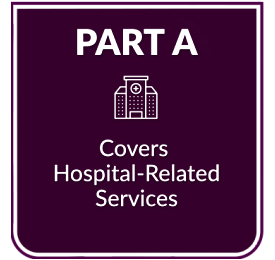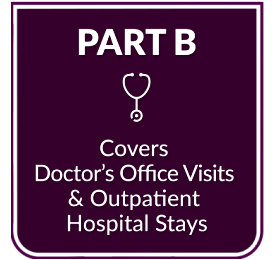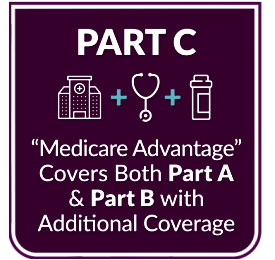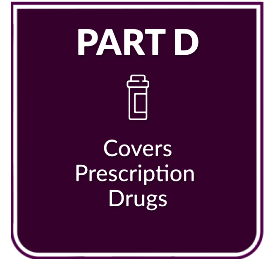Medicare Advantage Plans - aka Part C
One of the options a Medicare beneficiary has as a resource to tackle Original Medicare’s Co-Insurance, Co-Pays, and Deductibles is through the use of a Medicare Advantage plan, also known as Part C.
Medicare Advantage Plans are CMS-approved insurance plans offered through private health insurance companies. They combine Original Medicare, Part A, Part B, and generally Part D into one plan. Enrolling in a Medicare Advantage plan requires a person to enroll in Medicare Part A & Part B and reside in the plan’s service area. Medicare Advantage plans, at a minimum, include all benefits, services, and coverages outlined in Original Medicare. They generally have additional benefits and services Medicare does not cover, such as:
- Preventative Care & Wellness Programs.
- Routine Hearing Exams & Hearing Aids.
- Routine Vision Exams & Corrective Lenses.
- Comprehensive Dental Coverage.
- Worldwide Emergency Assistance Outside The U.S.
- It Has A Low or No Monthly Premium.
- Part D Is Generally Included In The Plan.
- It Provides Predictable Out-of-Pocket Costs.
- Usually Includes Extra Benefits Not Provided By Original Medicare.
- As A Rule, Working Within A Network Is Mandatory.
- Normally, Working With A Primary Care Physician Is Necessary.
- In General, It Requires A Referral To See A Specialist.
Two Types of Medicare Advantage Plans – HMO or PPO:
HMO – Health Maintenance Organization:- Cover Eligible Services For Providers And Facilities Inside The Network Only, Except In An Emergency.
- As A Rule, Have A Very Narrow Network Confined To A Specified Geographical Area.
- In-Network Out-of-Pocket Expenses Are Limited.
- Out-of-Network Expenses Are Mostly Out-of-Pocket.
- Normally, Require A Primary Care Physician.
- Typically, Require A Referral To See A Specialist.
- Generally, Require Pre-Authorization For Procedures.
- Cover Eligible Services For Providers And Facilities Inside The Network.
- Cover Eligible Services For Providers And Facilities Outside The Network.
- As A Rule, Have A Broad Network With Nation Wide Coverage.
- In-Network Out-of-Pocket Expenses Are Limited.
- Out-of-Network Out-of-Pocket Expenses Are Limited.
- Normally, Do Not Require A Primary Care Physician.
- Typically, Do Not Require A Referral To See A Specialist.
- Generally, Do Not Require Pre-Authorization For Procedures.
Medicare Advantage Plan Enrollment Timelines:
Annual Election Period Oct 15th – Dec 7th: Compare And Find The Best Plan For The Next Calendar Year. Coverage Changes That Can Be Made:- Change To A Different Medicare Advantage Plan.
- Switch From A Medicare Advantage Plan To Original Medicare.
- Switch From Original Medicare To A Medicare Advantage Plan.
- Change, Join or Drop Part D Prescription Drug Coverage.
- Coverage Will Become Effective On Jan 1st.
- Change To A Different Medicare Advantage Plan.
- Switch From A Medicare Advantage Plan To Original Medicare.
- Join A Separate Part D Prescription Drug Plan.
- Changes Can Only Be Made Once During This Time.
- Coverage Will Become Effective The 1st Of The Following Month.
- Moving Outside A Plan’s Service Area.
- Losing Employer Group Coverage.
- Qualify For The Medicare Savings Plan (Medicaid For Over 65).
- Qualify For Extra Help With Prescription Drug Costs (LIS).
- Loss Of Special Needs – Extra Help or Medicare Savings Plan.






